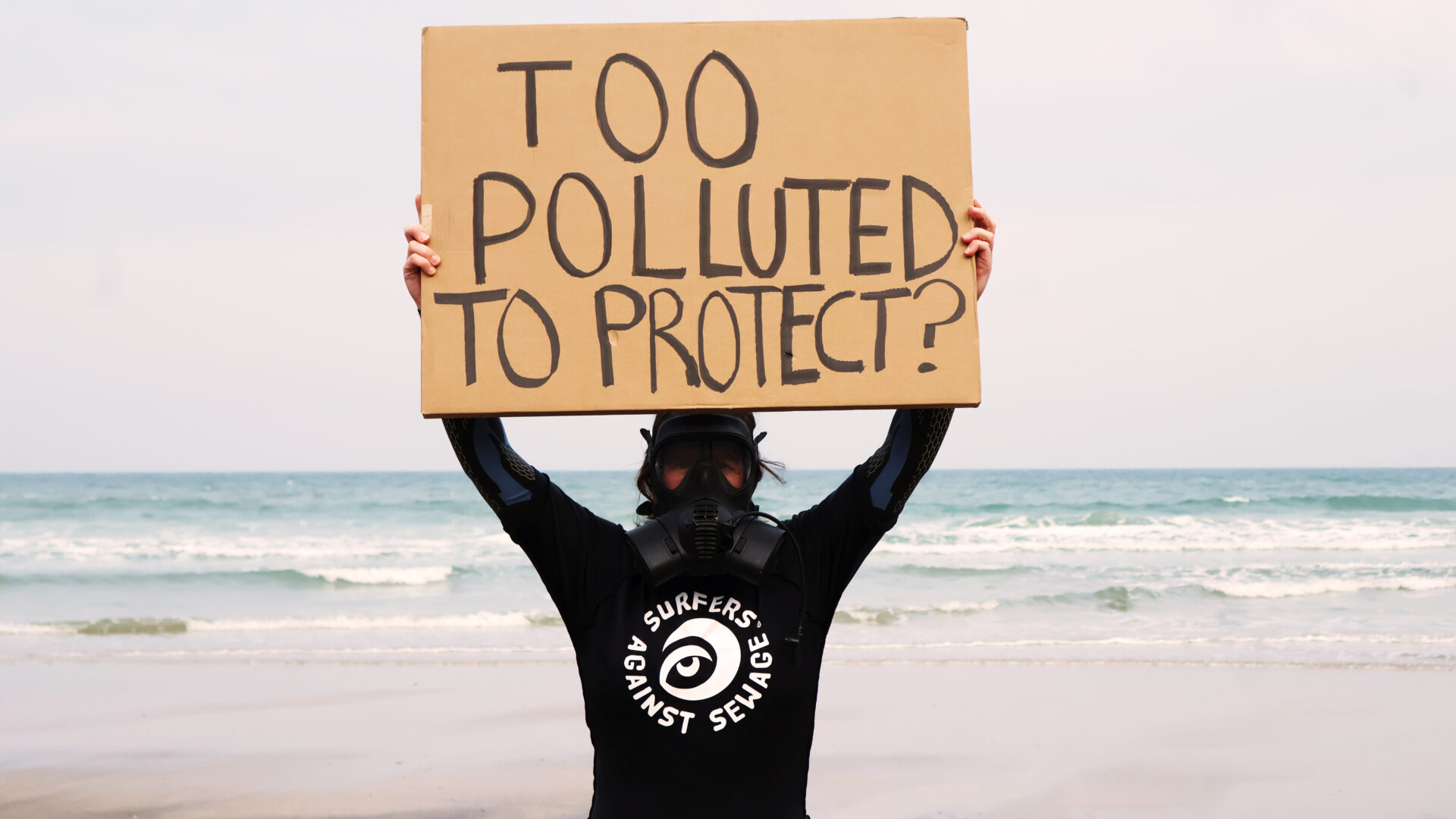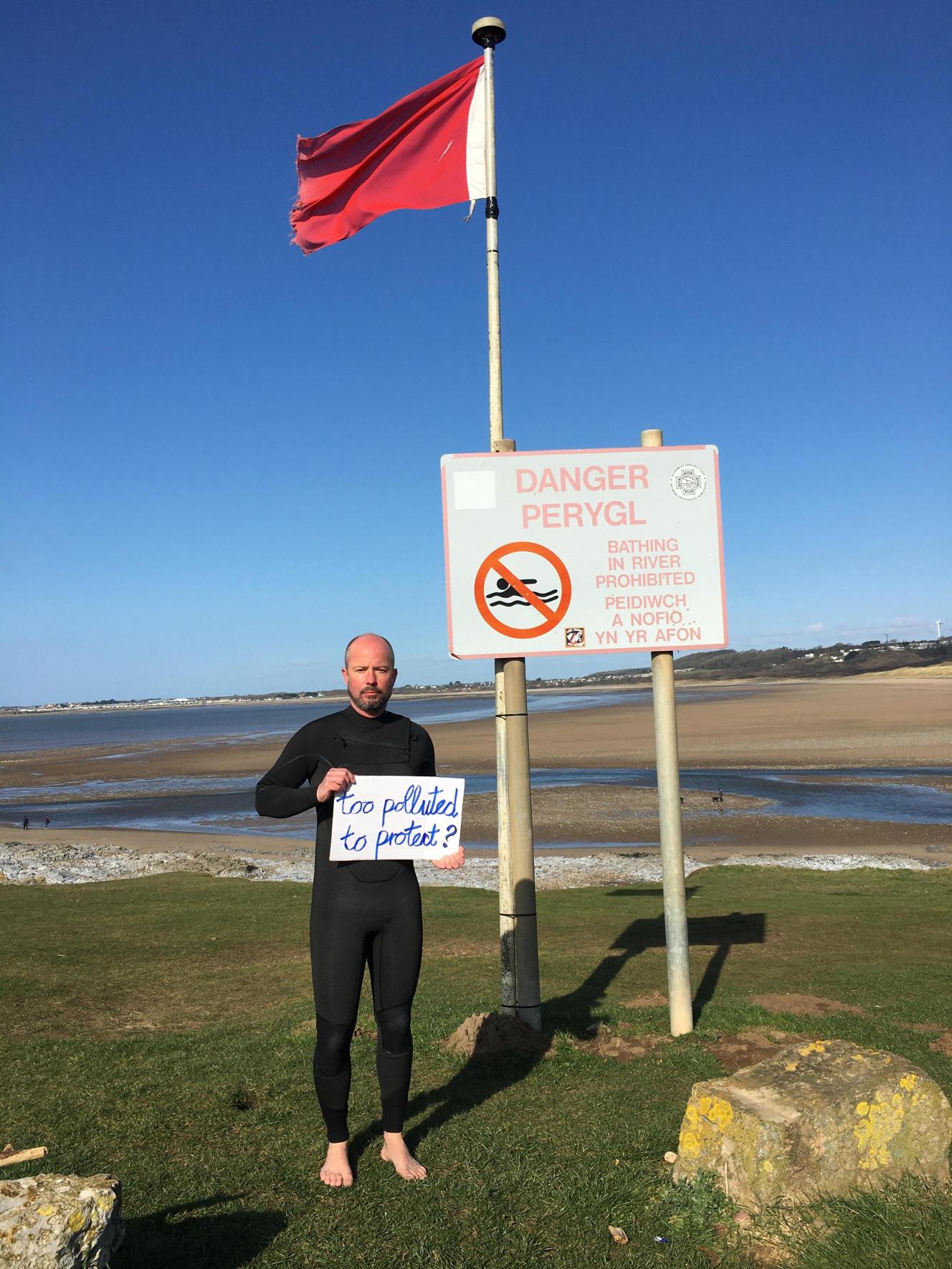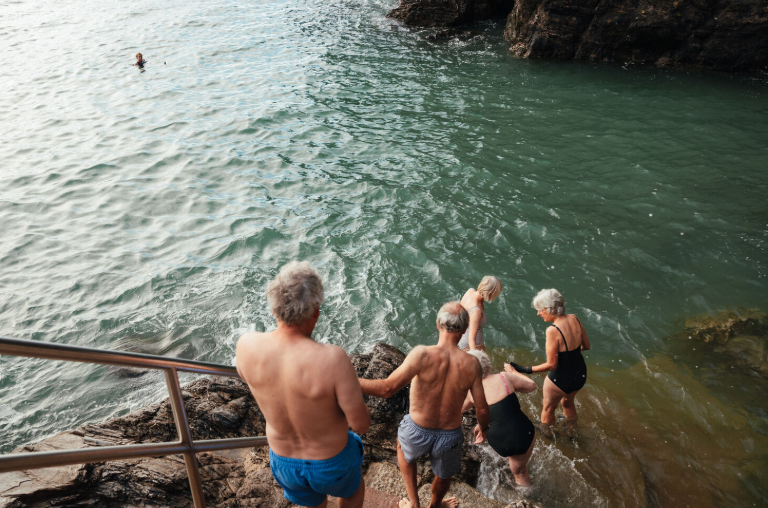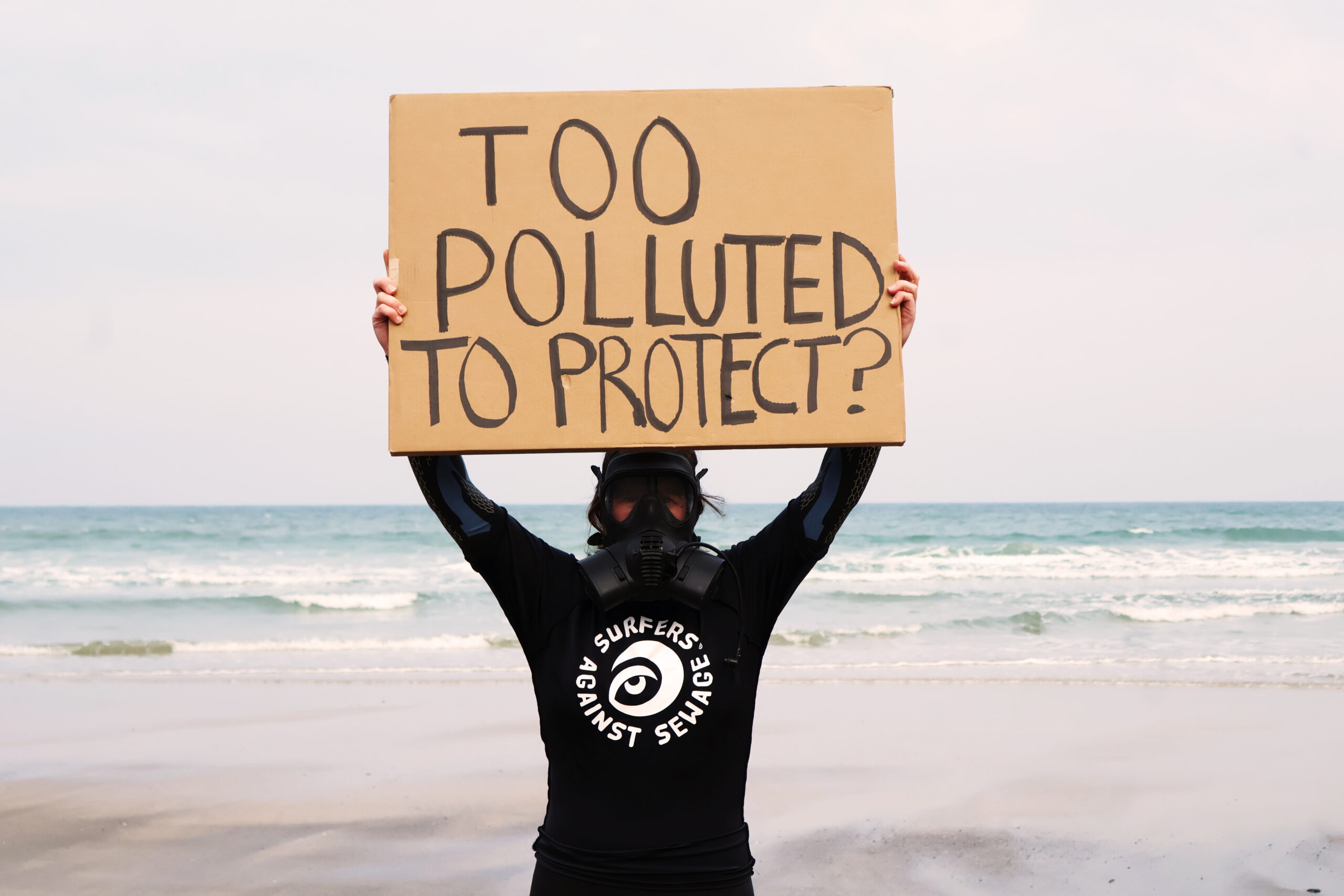
Too polluted to protect?
Government reforms to the Bathing Water Regulations could make it impossible for some swimming spots to achieve bathing water status.
The government announcement on Bathing Water Regulations could create more barriers to improving water quality in England and Wales, putting the health of water users at risk.
One of the reforms could mean that a swimming spot that is deemed too polluted and expensive to fix, is unable to receive bathing water status.
The announcement follows the government’s consultation to reform the Bathing Water Regulations for the first time in over a decade. The consultation launched last November after pressure from Surfers Against Sewage and campaign groups calling for change to the regulations.
One of the reforms states that a ‘feasibility test’ will be required for a proposed bathing water. This step could mean that sites that are deemed too polluted risk being immediately denied this designation, and therefore unable to receive the monitoring and investment needed to make blue spaces cleaner and safer for the communities that swim, surf, paddle or kayak there.
If this legislation was in place in 2020 there would be 20 official bathing sites that may have never been granted bathing water status as they received a ‘poor’ classification. These locations include Ogmore-by-Sea in South Wales, Church Cliff Beach in Lyme Regis and the River Cam in Cambridge.

Image: Local SAS team member and surfer Alun Moseley at Ogmore, South Wales
Designated bathing waters are the only bodies of water in England and Wales that are officially monitored for bacteria harmful to human health. Once a site is designated, the regulator takes samples once a week during the 20-week bathing season. Analysis of these samples provides the site with a classification of ‘excellent’, ‘good’, ‘sufficient’ or ‘poor’ based on the average amount of harmful bacteria found.
The new reform could mean that the country’s most polluted beaches, rivers and lakes are at risk of never becoming a designated bathing site and gaining the investment needed to be safer to swim in. This reform will directly benefit the polluters by giving water companies a way to argue that it’s too expensive to stop polluting a site that people swim in.
Surfers Against Sewage supports communities across the UK to apply for official bathing water designation and has been leading calls for significant reforms to the regulations.
Dani Jordan, Director of Campaigns and Communities at Surfers Against Sewage said:
“After promising the moon, the government is set to deliver a damp squib on reforming bathing water regulations. The common-sense changes to the regulations are welcome, but long overdue. The proposed ‘feasibility test’ that deems some areas as too polluted to protect will feel like a snub to communities who are simply asking the government for help in tackling the pollution of their local bathing spots, so that they can enjoy them safely.”
“This week the Minister for Water is touring the country proclaiming ‘things can only get cleaner,’ yet with this announcement, the government remains content for the polluters to take the money and run. This is yet another glaring sign that our water industry is broken and in urgent need of transformational reform – polluters’ profits should never trump the public’s right to clean water.”

Image: Swimmers at Castle Cove, Dartmouth
Explaining the importance of designated bathing waters and the potential impact of the reforms, Kirsty Davies, Community Water Quality Manager at Surfers Against Sewage said:
““Designated bathing waters are essential for protecting water users from sewage pollution. We welcome the fact that applications are re-opening for bathing water status with so many communities wanting to apply, however we are really concerned about the feasibility test that has been proposed in these reforms.
“Communities can apply for bathing water status, which holds polluters accountable and ensures that regulators monitor quality. However, the reform’s requirement for “sufficient” water quality before designation creates a huge barrier—if a site is deemed too costly or difficult to improve because it is too polluted, it can’t become a bathing water.
“This status is so important for public health, offering water quality information for water users, even for “poor” sites. Without it, communities lack this crucial information on whether it’s safe to swim or surf.
“Bathing Water Regulations need updating to reflect the year-round needs of all water-sports enthusiasts, requiring continuous monitoring for everyone’s safety.”

Vicki Elcoate, part of River Lim Action group in Dorset, added: “Our beautiful small bathing beach, Church Cliff, here in Lyme Regis was de-designated as a bathing water site in 2015 because of poor water quality. Our local group was delighted in 2024 when we secured its re-designation. Bathing water status helps provide the resources and focus needed to improve water quality where people swim. It’s not good enough for the water company and regulators to wash their hands of improved water quality. Rather than being poor value for money, it helps direct attention and money to where it’s most needed for public benefit.”
